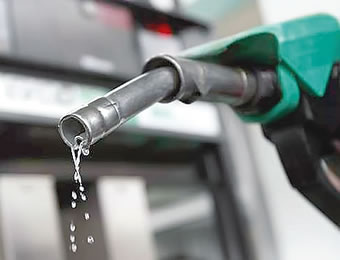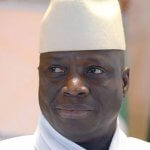THERE are strong indications that pump price of premium motor spirit (PMS), otherwise called petrol may rise as crude oil price approaches $60 per barrel.
By implications, it means higher crude price will automatically translates into higher landing cost of imported refined petroleum products, which may force petrol to sell for above N200 per litre.
It would be recalled that petrol enjoins partial deregulation at the moment unlike kerosene, Automotive Gas Oil (AGO) otherwise called diesel, Jet-A1 and others that have been completely deregulated. These fully deregulated products are selling for between N230-N260 per litre.
When crude price fell below $30 per barrel in January 2015, it resulted into reduction in pump price of petrol by the Federal Government from N97 per litre to N87 per litre. The reduction was announced by former Minister of Petroleum Resources, Diezani Alison-Madueke, on Sunday, January 18, 2015.
With the enforcement of cut in production deal, as agreed by members and non-members of Organisation of Petroleum Exporting Countries (OPEC) in November last year, crude price has began to show signs of tremendous recovery and analysts predicted that it may hit $60 per barrel by midyear.
Presently, ascertaining the current landing cost components of imported petrol may be challenging because the website of Petroleum Products Pricing Regulatory Agency (PPPRA) has been shutdown while the spokesman of the agency saddled with regulating prices of petroleum products in the country, Mr Lanre Oladele, did not pick his phones and did not reply to text messages sent to his phones as well.
Sources within the agency said only few individuals have access to details regarding the landing cost components of petroleum products now.
However, a major marketer who preferred anonymity because he wasn’t authorised to speak to media, stated that “business wise, there may be increase in pump price of petrol due to increase in crude price and drop in exchange rate of naira to a dollar. But politically speaking, Federal Government may not consider increase in pump price of petrol because of present economic situation in the country.”
When asked to shed light on the topic, he simply posited that “as at today, nothing has changed with regards to landing cost of petrol. We still buy at N131 per litre; the Federal Government takes care of other costs including administrative costs and foreign exchange differentials. What the government does is to supply crude oil to foreign refiners and get refined products in return through OPA (Offshore Processing Agreement).
“You may have noticed that we don’t import anymore. Most of us running away from importation of petrol because the Federal Government is not ready to guarantee availability of dollars at an official rate and you may find it difficult to process recovery of your costs. So, government takes care of all costs and I don’t see any increase in pump price of petrol soon. If government had embarked on direct importation of products, it would have been disastrous for the government to manage.”
The gains of decrease in crude price were negated by devaluation of the naira against the dollar, which forced landing cost of petrol to soar. Being faced with no option, but deregulation, the Federal Government announced partial removal of fuel subsidy by adopting price modulation strategy. The government arrived at a price band of N135-N145 per litre, which means no marketer can sell above N145 per litre.
Minister of State for Petroleum Resources, Dr Ibe Kachikwu, while announcing price modulation strategy on May 11, 2016, he said the strategy would be reviewed quarterly. But that has not been done since last year when it was introduced.
The implication of the price modulation strategy, as against full deregulation, is to ensure that Nigerians are not short-changed and marketers do not make abnormal profit.
Meanwhile, as at 5pm on Wednesday, Brent crude was selling at $55.51 per barrel while WTI crude was selling at $52.34 per barrel at the international market.
WATCH TOP VIDEOS FROM NIGERIAN TRIBUNE TV
- Let’s Talk About SELF-AWARENESS
- Is Your Confidence Mistaken for Pride? Let’s talk about it
- Is Etiquette About Perfection…Or Just Not Being Rude?
- Top Psychologist Reveal 3 Signs You’re Struggling With Imposter Syndrome
- Do You Pick Up Work-Related Calls at Midnight or Never? Let’s Talk About Boundaries






